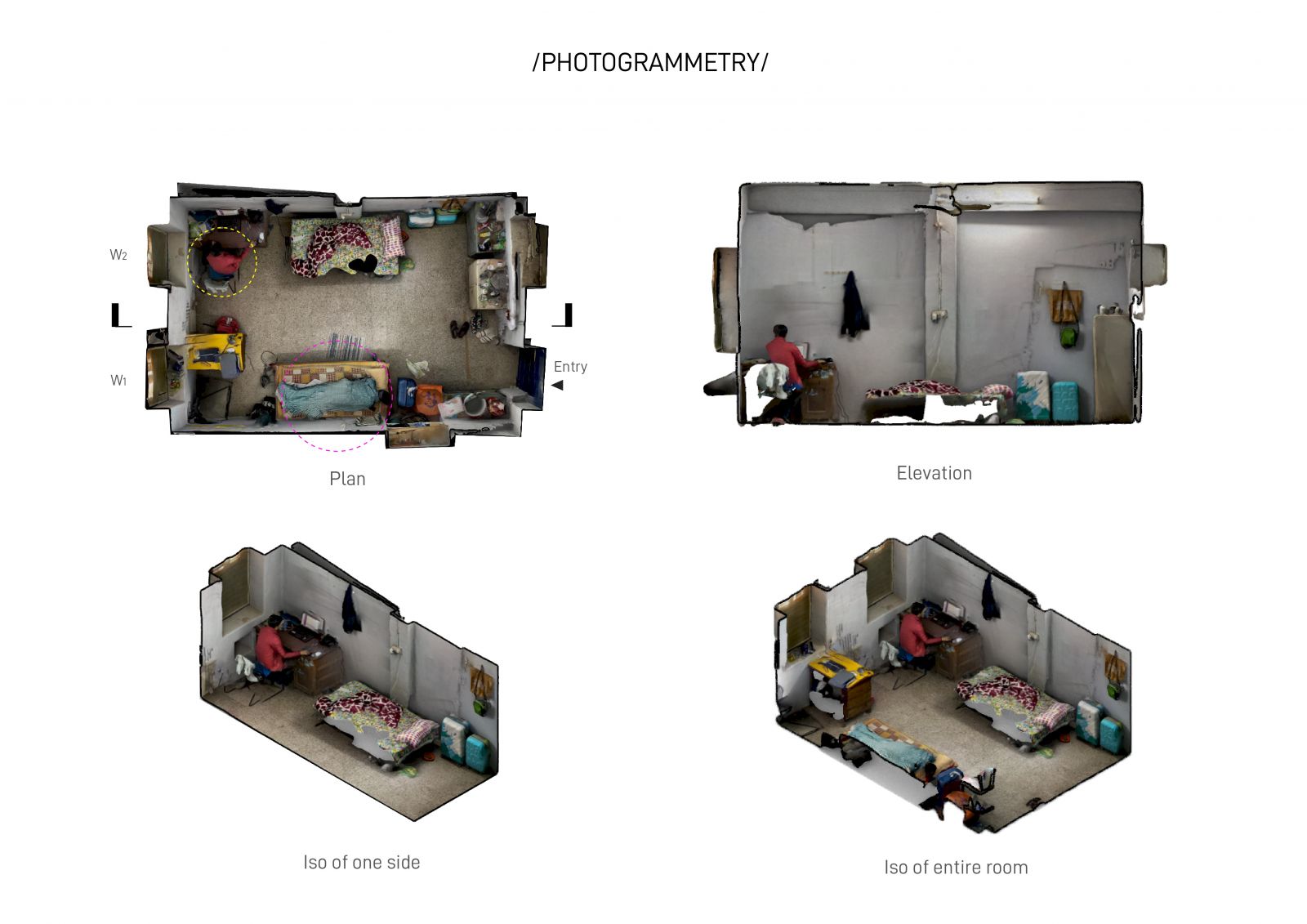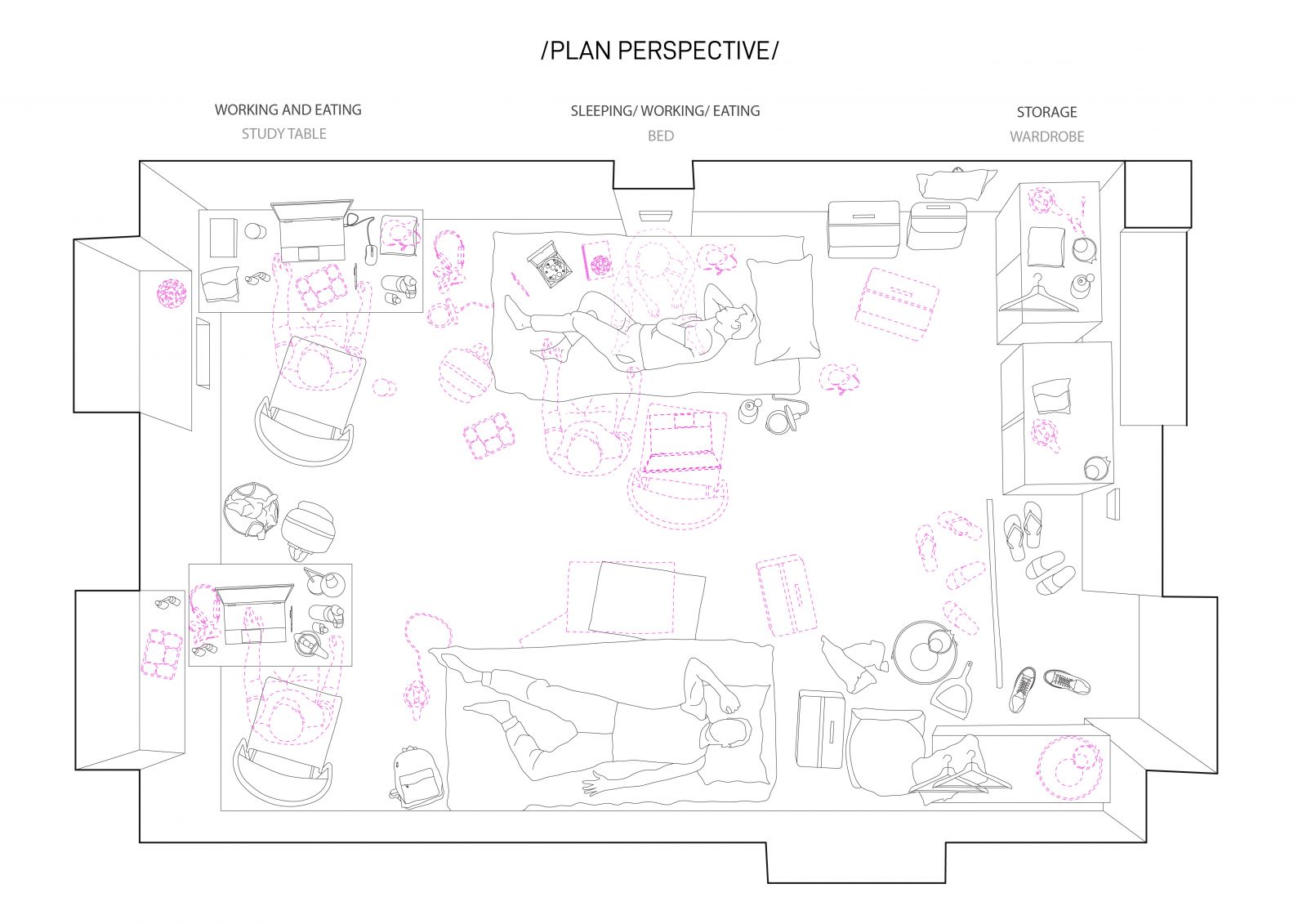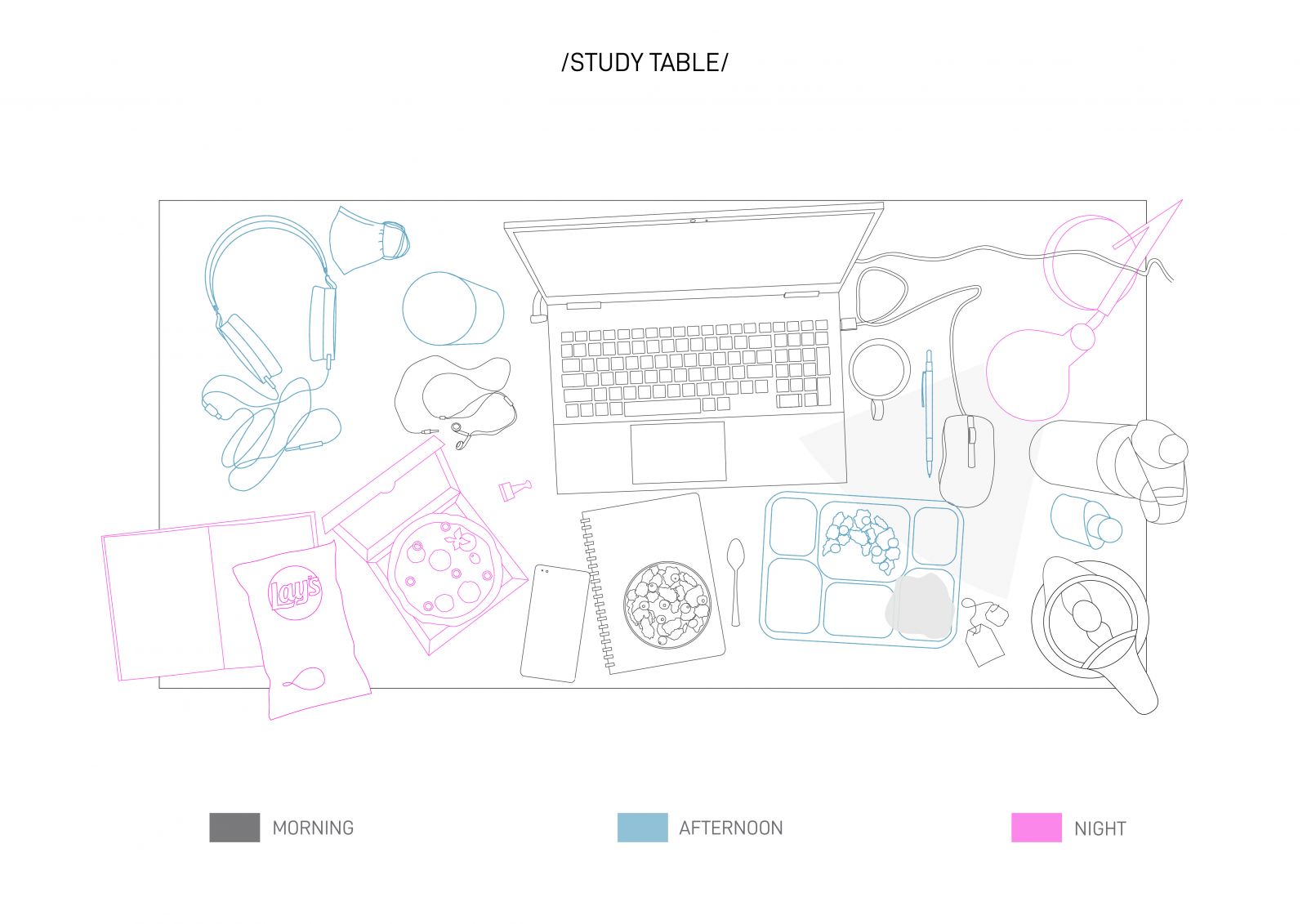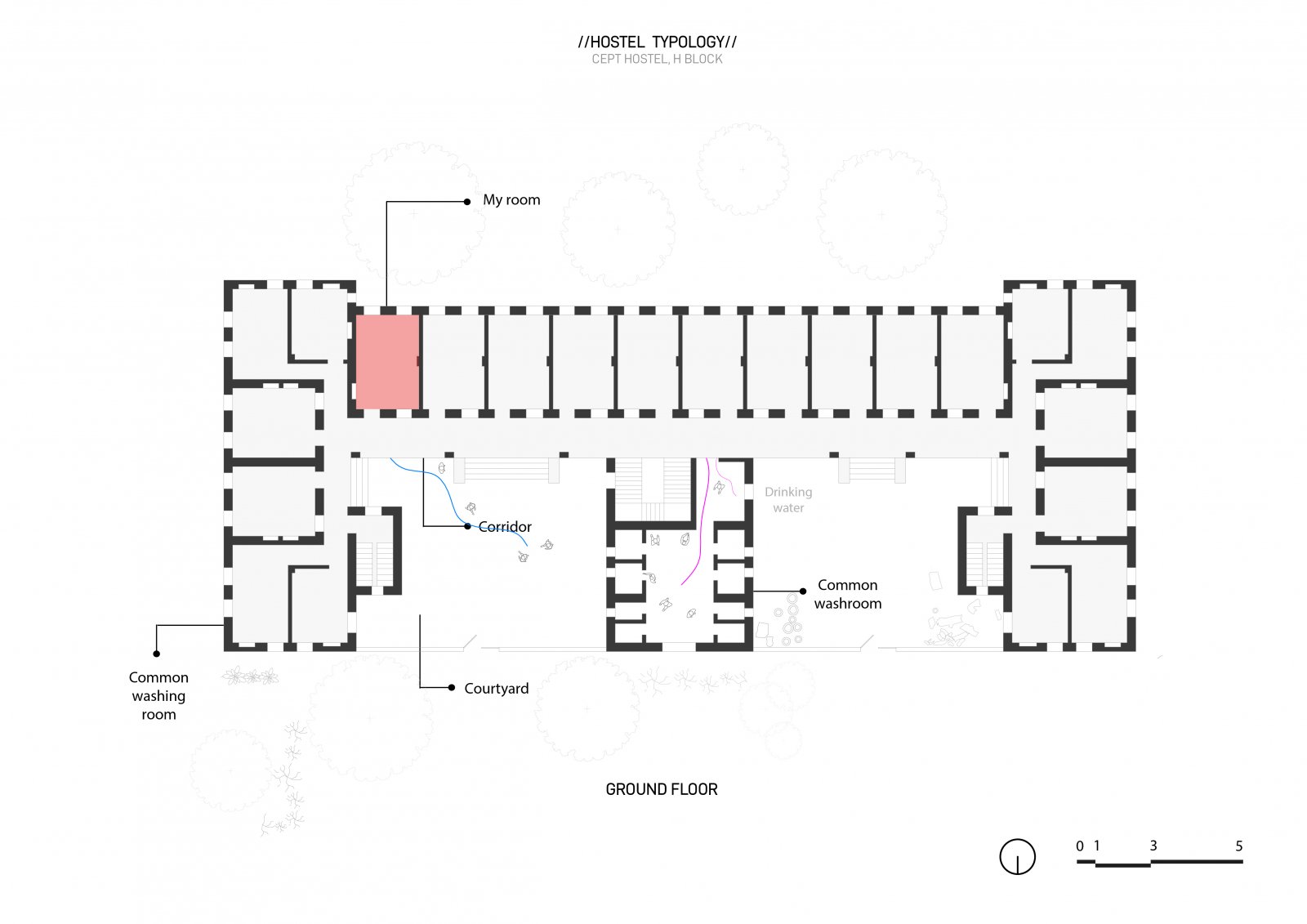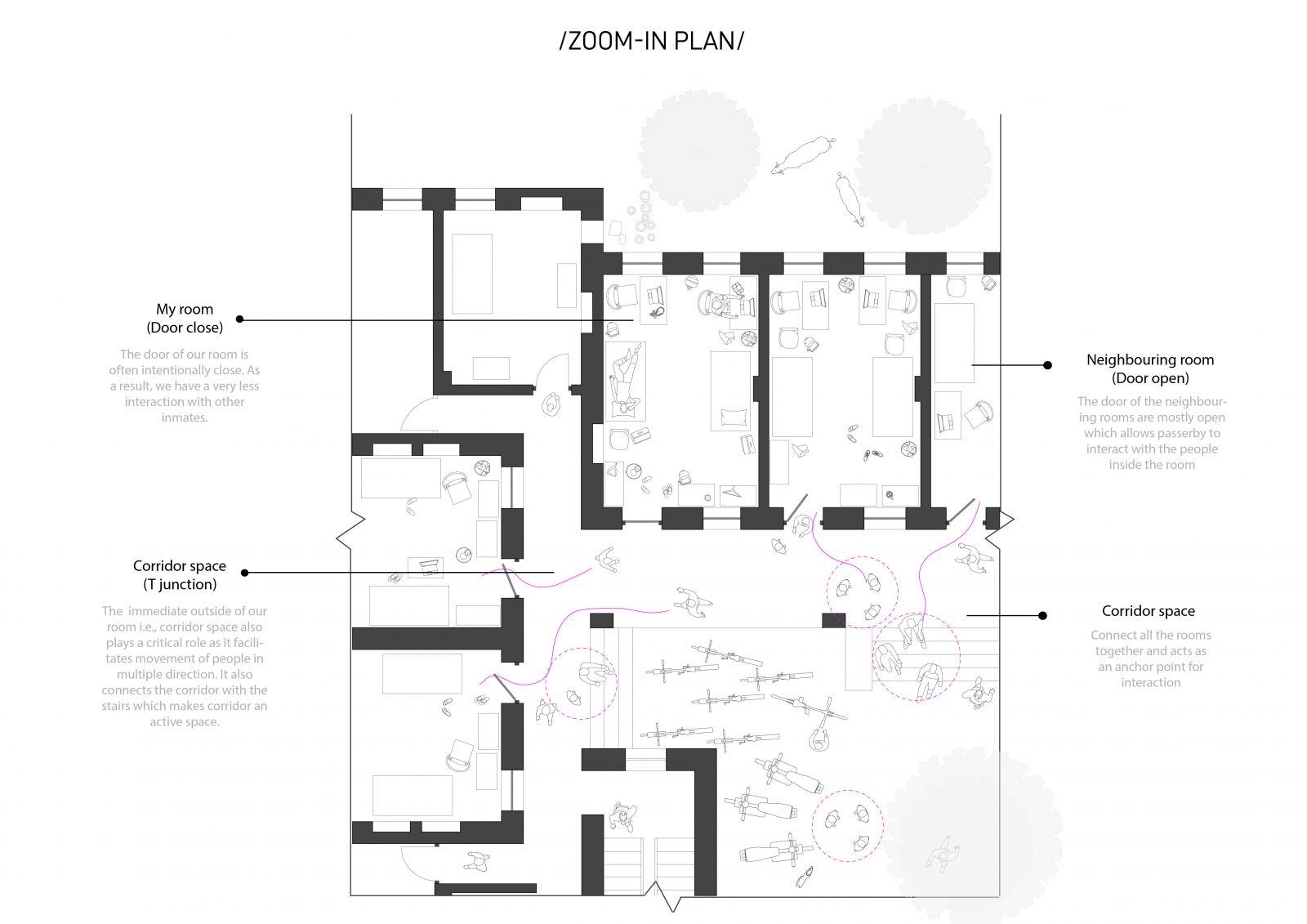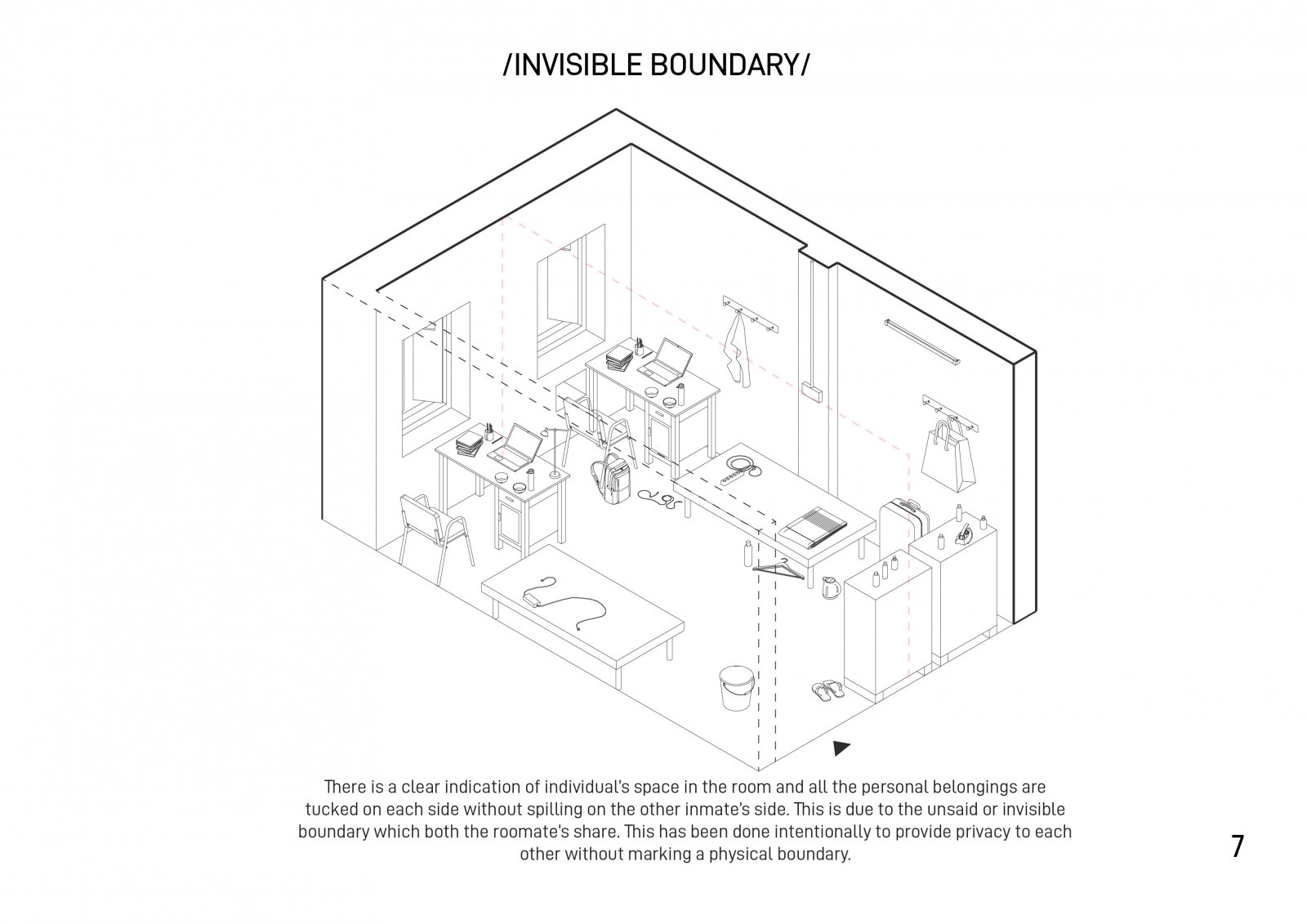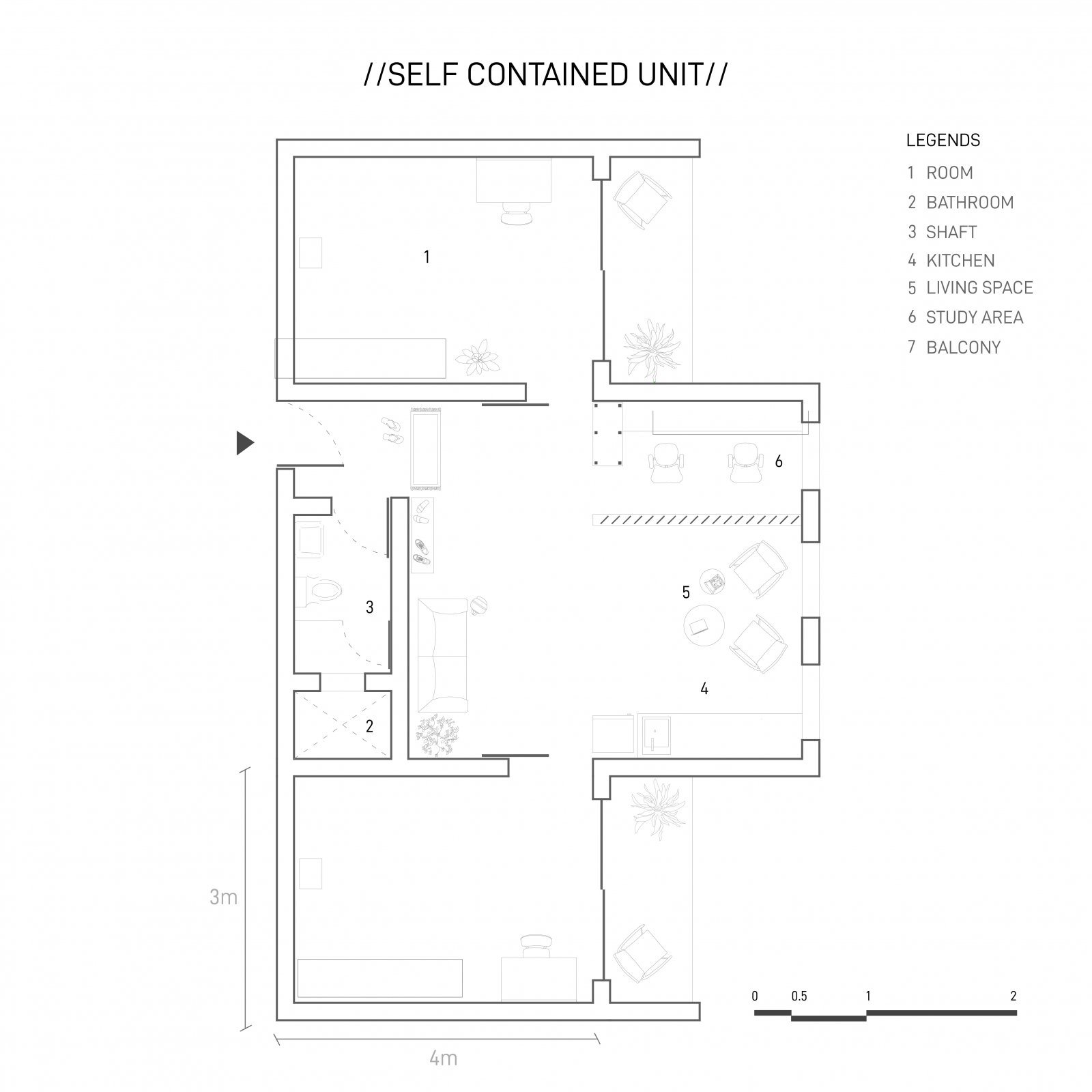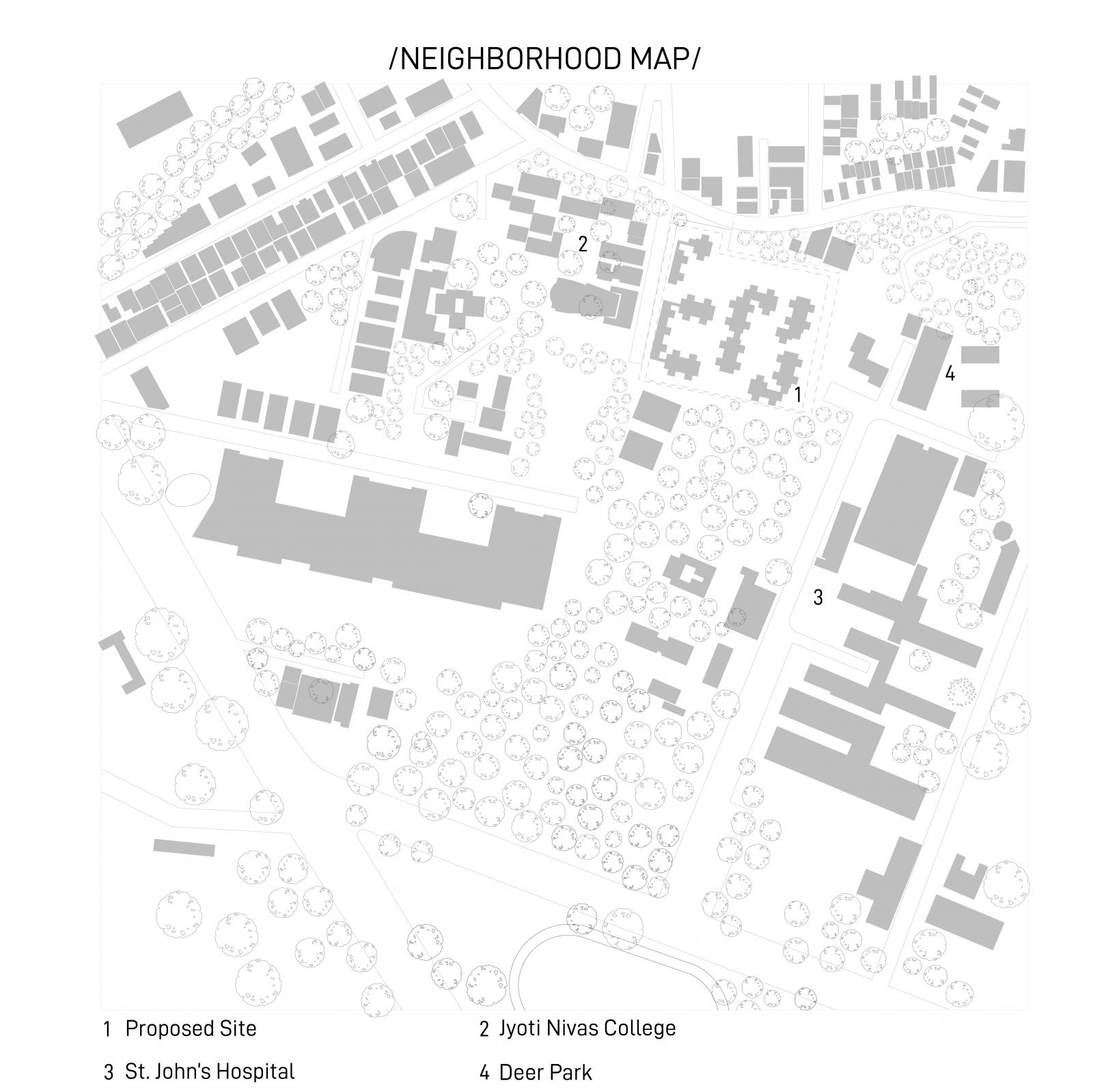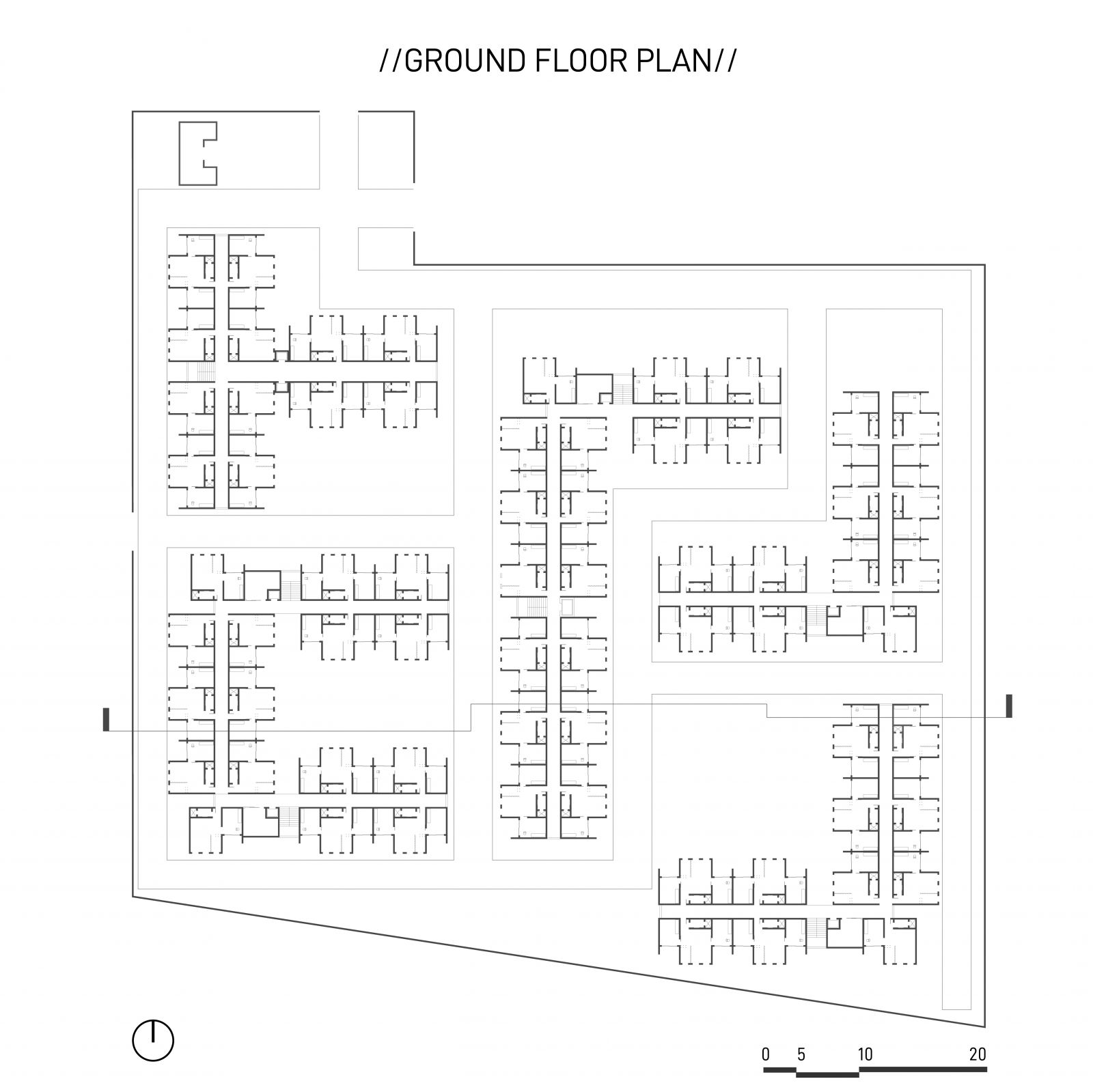Your browser is out-of-date!
For a richer surfing experience on our website, please update your browser. Update my browser now!
For a richer surfing experience on our website, please update your browser. Update my browser now!
The project beyond territorial boundaries takes a critical approach on the idea of living in a hostel. Often misinterpreted, hostels around the world are typically institutionalized bodies for like minded people to live together with a constant sense of ‘temporal belonging’. The notion of temporality and constant mobility associated with living in a hostel often results in lack of ‘community engagement’ and ‘social well being’. A hostel has a cyclic inflow and outflow of people which makes it confined and uncertain. The project looks at the micro level of productive and domestic patterns of living in a shared space with a roommate. A hostel has a cyclic inflow and outflow of people which makes it confined and uncertain. It does not only reflect a person’s present living condition but it also reflects upon past experiences which have shaped their present. In this case, taking care of ourselves on our own and limiting our engagement with each other lacks the idea of ‘care’, ‘socializing’ and ‘engagement’ which is not good for social well being.
View Additional Work